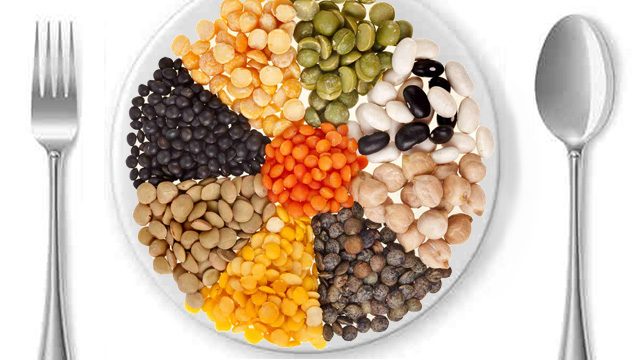SUMMARY
This is AI generated summarization, which may have errors. For context, always refer to the full article.

MANILA, Philippines – One of the world’s important food crops are threatened by drought but the solution lies possibly in the first step of production, according to a recent study by the University of Indiana.
The study, entitled “Global synthesis of drought effects on food legume production” which was published in scientific journal PLOS ONE, suggested that it is the time to prioritize the development of legume species that are drought-resistant.
Through this, the impacts of water scarcity and the changing climate can be lessened, if not mitigated.
Legumes are important fixtures in food security, especially among developing countries. Peas, beans, and peanuts, among others, are grown in any country with region-specific climate.
According to the Food and Agricultural Organization, these food crops are important in maintaining good health and fighting malnutrition.
Usually planted in small-scale gardens, legumes together with basic crops offer “great potential” in improving food security and decreasing micronutrient deficiencies in grassroots communities. (READ: How local crops can end malnutrition)
Varying results
The researchers studied data related to yield of legumes from 1984 to 2014 and tested several variables from farms around the world. Through this process, they were able to find out the importance of each variable in relation to drought.
These variables include legume species, location, such as tropic or non-tropic, climatic region, drought timing, and soil texture.
According to Lixin Wang, the study’s author and professor from the university’s School of Science, synthesizing related data from across the globe “better characterize the factors that determine the magnitude of yield loss in legumes due to drought stress.”
The study found out that a reduction in water availability can really result in yield decrease. It also added that the yield depends on the phonological state – or the stage in the life cycle of a plant – it is in when hit by drought.
For example, a legume that is affected by drought in its reproductive stage is more likely to yield less.
However, the most important discovery was that the extent of the impact varied depending on the legume species.
Peanuts, pigeon pea, and lentils are more likey to yield more when planted in drought conditions. Meanwhile, the common bean – also called string bean – was found to be more sensitive to drought.
Because of this, the study emphasized the importance of selection and promotion of drought-resistant legume species as a way to lessen the impact of droughts.
Keep what’s important
There is a foreseen rising demand for these food crops and is attributed to the increasing global population – which is expected to rise to 9.5 billion by 2020.
In addition, the rising trend towards adapting healthy eating habits has contributed to the demand. Consuming legumes can reduce risks of cardiovascular diseases, diabetes, and obesity as they are rich in protein and fiber.
Unfortunately, due to the changing climate, shifts in weather patterns, and decreased rainfall, several legumes-growing regions suffer growing problems related to water and increasing crop failures. (READ: Empowering farmers against climate change)
But with studies that discover numerous ways producers can help adapt in the climate, this problem could be solved in no time.
However, better planning before implementation should be considered to minimize the agricultural loss.
“This (study) must be included in agricultural planning to increase the resilience of legume production systems,” Wang emphasized. – Rappler.com
Plate and legumes photo from Shutterstock.
Be part of the conversation! You may also send your video materials, campaigns, and stories to move.ph@rappler.com. Be part of the #HungerProject.
Add a comment
How does this make you feel?
There are no comments yet. Add your comment to start the conversation.